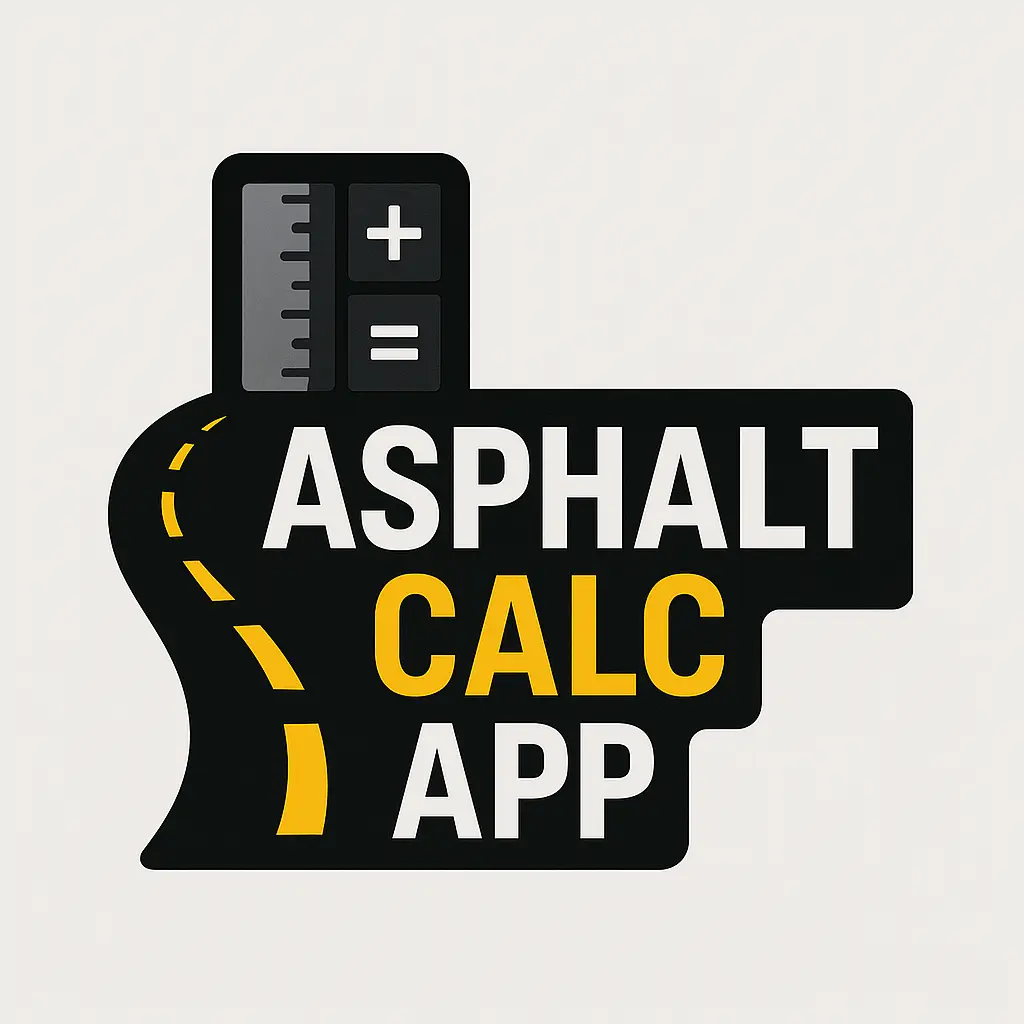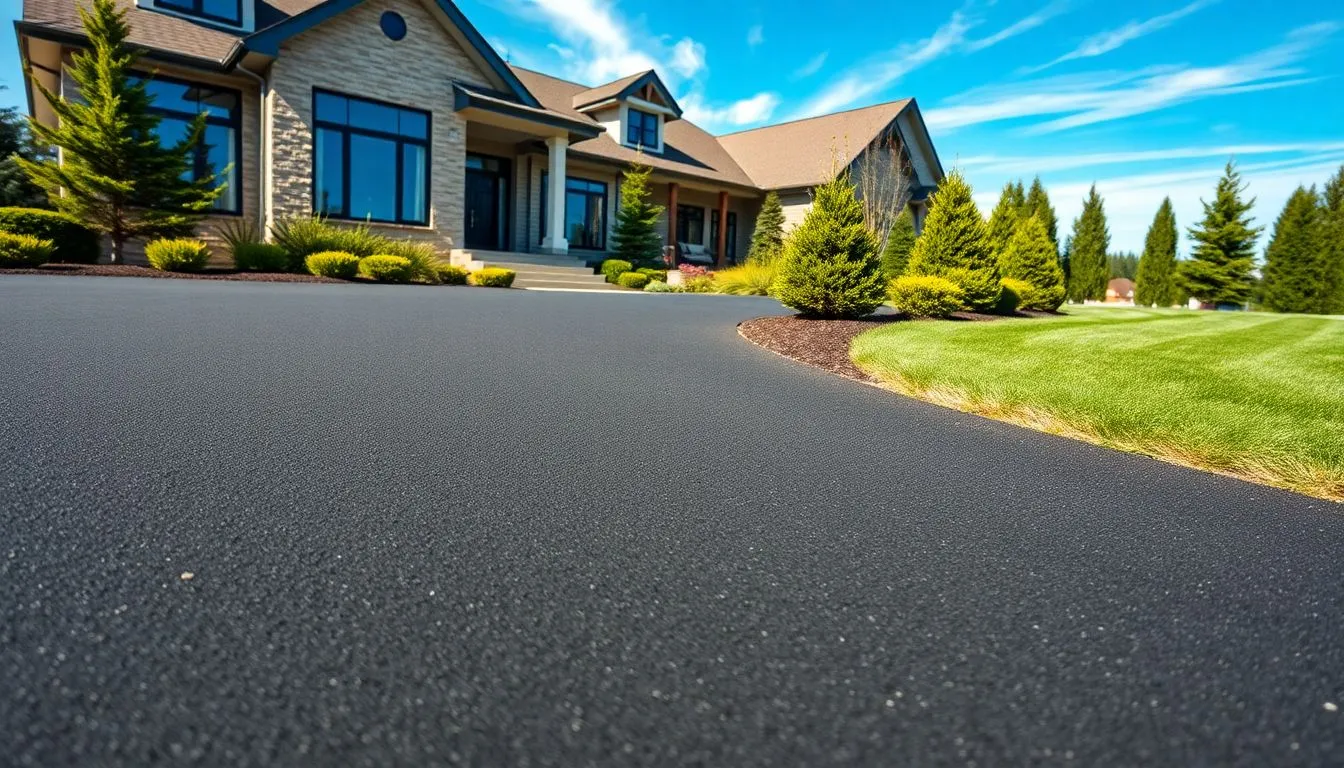Asphalt driveways are a popular choice for many homes and businesses. They’re known for being durable, affordable, and easy to keep in good shape. Whether building a new driveway or replacing an old one, knowing the costs involved is key to planning your budget.
Understanding what affects the price helps you make smarter choices and avoid surprise bills. This guide breaks down all the elements that affect asphalt driveway costs. You’ll learn about pricing, maintenance, and how to save money without sacrificing quality.
Factors Influencing Asphalt Driveway Costs
Size and Dimensions
The size of your driveway has a significant impact on the overall cost. Larger driveways require more materials and time to install. For example, a 20×20-foot driveway might cost between $800 and $2,000 to install, while a 40×80-foot driveway could cost $6,400 to $16,000. Always measure carefully to get precise quotes from contractors. Small differences in size can change your budget significantly.
Material Quality and Type
Not all asphalt is created equal. There are standard mixes and premium grades. Standard asphalt is cheaper but might not last as long or look as nice. Premium asphalt costs more but offers better durability and a smoother appearance. Investing in higher-quality asphalt makes sense if you want your driveway to last longer with less maintenance. The type you choose will affect both the upfront cost and how much you spend later on repairs.
Site Preparation and Subgrade Conditions
A smooth driveway needs a good foundation. Site prep includes grading the land, leveling, and adding a base layer of gravel or other materials. If your soil is soft, sandy, or has drainage issues, preparation costs will go up. Proper preparation prevents cracks and potholes later, but it can add hundreds to thousands of dollars to your project. Good site work is a smart investment for a long-lasting driveway.
Design Features and Customization
Adding curves, decorative borders, or patterned finishes increases the cost. These options require extra planning and skilled labor. While they can boost curb appeal, they also mean higher expenses. Custom features are perfect if you want a unique look that stands out, but be prepared for a bigger bill.
Geographic Location and Labor Costs
Prices vary across regions. In cities or affluent areas, labor and materials tend to cost more due to higher wages and transportation costs. Climate also plays a role—hotter regions might have slightly lower costs, while cold areas face added expenses for freeze-thaw resistance. Check regional averages to get a realistic idea of what to expect in your area.
Detailed Cost Breakdown
Average Cost per Square Foot
Asphalt driveways typically cost between $2 and $5 per square foot. Smaller driveways usually cost less per square foot, while larger ones might be at the higher end because of complexity. In urban locations, installation costs can rise above $5 per square foot, whereas rural areas might see rates below $3. Expect most projects to fall inside this range.
Installation and Labor Costs
Labor accounts for a major portion of the total. Skilled workers usually charge $50 to $100 per hour. The installation process includes grading, base laying, asphalt pouring, and finishing. A typical project takes one to three days, depending on its size. Getting quotes from reputable contractors ensures you’re paying a fair price and avoiding shoddy work.
Materials Expense
Asphalt material costs approximately $100-150 per ton. A standard 20×20-foot driveway needs about 3 to 4 tons of asphalt, costing $300 to $600. Larger projects will require more material, increasing expenses. Choosing higher-quality asphalt boosts material costs while decreasing future repairs.
Additional Expenses
Other costs include clearing land, excavating the old driveway, and installing drainage or edging. Sealcoating, which helps protect the asphalt, adds about $0.10 to $0.20 per square foot annually. Resurfacing or patch repairs are also common, especially after years of use. These fees should be included in your overall budget.
Estimated Total Cost for Common Driveway Sizes
- 20×20 ft: $1,600 – $4,000
- 30×50 ft: $3,000 – $7,500
- 40×80 ft: $6,400 – $16,000
Always plan for a little extra — unexpected issues or upgrades can push costs higher. Budget 10-15% more than your initial estimate to cover surprises.
Maintenance and Long-term Expenses
Routine Maintenance Procedures
Sealcoating every 2 to 3 years keeps your driveway looking good and adds years to its life. Expect to pay $0.10 to $0.20 per square foot each time. Filling cracks early prevents bigger problems later. Regular cleaning and minor repairs can save you big money over time.
Repair and Resurfacing Costs
Cracks, potholes, or uneven surfaces call for repair. Small patches cost about $50 to $150. For more extensive damage, resurfacing can cost $1,000 to $3,000 or more. In some cases, a full replacement might be necessary after 15-20 years.
Lifespan and Replacement Timeline
With good upkeep, an asphalt driveway lasts approximately 15 to 20 years.. Cold climates, poor drainage, or heavy use can shorten this lifespan. When cracks or repairs become frequent, it might be better to replace the driveway instead of patching. Replacement costs can be similar to initial installation.
Cost-Saving Tips and Expert Recommendations
- Opt for high-quality asphalt initially to avoid frequent repairs.
- Follow a regular maintenance routine: sealcoat, fill cracks, and keep it clean.
- Get various quotations and select trusted contractors with positive reviews.
- Install during the off-peak season, when demand and rates are low.
- Consider smaller customization options if the budget is tight, but you want some flair.
Asphalt Driveway Costs, Maintenance, (2024 Update)
Asphalt driveways continue to be a popular choice for their durability and affordability, but costs and best practices evolve yearly. This 2024 guide reflects the latest pricing trends, material innovations, and regional considerations to help you budget and maintain your driveway effectively.
Key Factors Influencing 2024 Asphalt Driveway Costs
1. Size and Dimensions
-
Cost Range:
-
20×20 ft (400 sq ft): 1,400–3,200 (up 5–10% from 2023).
-
30×50 ft (1,500 sq ft): 5,000–12,000.
-
40×80 ft (3,200 sq ft): 10,500–24,000.
-
-
Smaller projects may cost up to $12 per sq ft due to labor minimums.
2. Material Quality and Type
-
Standard Asphalt: 3.50–6 per sq ft (12–18 years lifespan).
-
Premium Asphalt: 6–8 per sq ft (20+ years, enhanced crack resistance).
-
Recycled Asphalt: 2.50–5 per sq ft (now used in 30% of projects for sustainability).
3. Site Preparation
-
Grading/Leveling: 600–3,000 (due to higher equipment costs).
-
Gravel Base: 1.50–4 per sq ft (6–8 inches recommended for extreme weather zones).
-
Soil Stabilization: Add 1,200–3,500 for expansive clay or sandy soils.
4. Design and Customization
-
Decorative Borders: 6–18 per linear foot (stamped concrete edges trending).
-
Permeable Asphalt: 8–12 per sq ft (growing demand for stormwater management).
5. Location and Climate
-
Urban Areas: 15–30% price premium (e.g., 7–12 per sq ft in major cities).
-
Cold Climates: Add 1–1.50 per sq ft for polymer-modified asphalt or rubberized mixes.
-
Wildfire-Prone Regions: Fire-resistant coatings add 0.75–1.50 per sq ft.
2024 Cost Breakdown
Materials
-
Asphalt Price: 120–240 per ton (up 8–12% due to oil market volatility).
-
Gravel Base: 35–75 per cubic yard (regional shortages in some areas).
Labor
-
Crew Rates: 60–120 per hour (skilled labor shortages persist).
-
Installation Time: 2–4 days for larger projects (delays possible in high-demand seasons).
Additional Costs
-
Permits: 75–400 (stricter regulations in flood-prone zones).
-
Drainage Systems: 600–2,500 (required in many coastal/mountain regions).
-
Solar-Reflective Sealants: 0.30–0.50 per sq ft (cuts heat absorption in hot climates).
Maintenance and Long-Term Expenses
Routine Upkeep
-
Sealcoating: Every 2–3 years (0.20–0.40 per sq ft).
-
Crack Filling: 1.50–4 per linear foot (rising labor rates).
Repairs
-
Pothole Patching: 75–250 per hole.
-
Resurfacing: 2–4 per sq ft (recommended every 8–12 years in harsh climates).
2024 Cost-Saving Strategies
-
Leverage Tax Credits: Some states offer rebates for permeable or recycled asphalt.
-
Bundle Services: Combine driveway installation with landscaping for contractor discounts.
-
Opt for Hybrid Designs: Use asphalt for the main area and gravel for extensions.
-
Lock in Quotes Early: Prices rise 2–5% during peak summer months.
Conclusion
Knowing what influences asphalt driveway costs helps you plan wisely. Size, material quality, site prep, design, and location all play a role. Setting a clear budget and understanding ongoing expenses ensure your driveway remains a long-term investment. Remember, investing in quality and good maintenance can ultimately save money.. Think ahead, budget smart, and your asphalt driveway will serve you well for years to come.
2024 brings both challenges (rising costs) and innovations (smarter materials) to asphalt driveway projects. By prioritizing quality prep, leveraging recycled materials, and staying informed on local incentives, you can maximize value and longevity. Always:
-
Verify contractor credentials (check 2024 licensing).
-
Review contracts for inflation clauses.
-
Budget a 15% contingency for unexpected issues.
Need a 2024 Quote? Contact 3–5 local contractors and mention this guide to negotiate confidently!
Disclaimer: Costs vary by region. Always confirm pricing with local suppliers and contractors before finalizing plans.
FAQs
1. What is the average cost per square foot for an asphalt driveway?
The average cost ranges from 2to5 per square foot, depending on size, location, and materials. Urban areas may exceed 5/sqft,whileruralregionscanbebelow3/sq ft.
2. How does driveway size affect the total cost?
Larger driveways require more materials and labor. For example:
-
20×20 ft: 1,600–4,000
-
40×80 ft: 6,400–16,000
Even small size differences can impact your budget, so measure carefully for accurate quotes.
3. What’s the difference between standard and premium asphalt?
-
Standard asphalt is cheaper upfront but may require more maintenance.
-
Premium asphalt costs more initially but offers greater durability, a smoother finish, and longer lifespan.
4. Why is site preparation important?
Proper grading, leveling, and a gravel base prevent cracks and potholes. Poor soil or drainage issues can increase prep costs by hundreds to thousands of dollars, but it’s a critical investment for longevity.
5. Do design features like curves increase costs?
Yes. Customizations such as decorative borders, curves, or patterned finishes require skilled labor and planning, raising overall expenses.
6. How does geographic location impact pricing?
Labor and material costs vary by region. Urban or affluent areas often have higher prices due to wages and transportation. Climate also plays a role—cold regions may need added freeze-thaw resistance, increasing costs.
7. What are typical labor costs for installation?
Skilled laborers charge 50–100 per hour. Installation includes grading, base laying, asphalt pouring, and finishing, typically taking 1–3 days.
8. What additional expenses should I budget for?
Include land clearing, excavation, drainage systems, edging, and sealcoating (0.10–0.20/sq ft annually). Resurfacing or repairs may cost 1,000–3,000+.
9. Why are asphalt costs rising in 2024?
-
Crude oil prices, labor shortages, and stricter environmental regulations are key drivers.
10. Can I install asphalt in winter?
-
Only in mild climates. Most contractors pause in freezing temperatures due to improper binding.
11. Are there AI tools to estimate my project cost?
-
Yes! Many contractors now use AI-powered platforms (e.g., AsphaltPro) for real-time quotes.
12. How do I handle oil stains on new asphalt?
-
Use eco-friendly degreasers immediately. Avoid harsh chemicals—they degrade sealants.
13. Is drone surveying used for site prep?
-
Increasingly yes. Drones map drainage issues and slope accuracy, adding 200–500 to prep costs.
14. What’s the latest in eco-friendly asphalt?
-
Bio-based binders (made from pine resin or algae) are gaining traction, though costs remain 10–15% higher.

